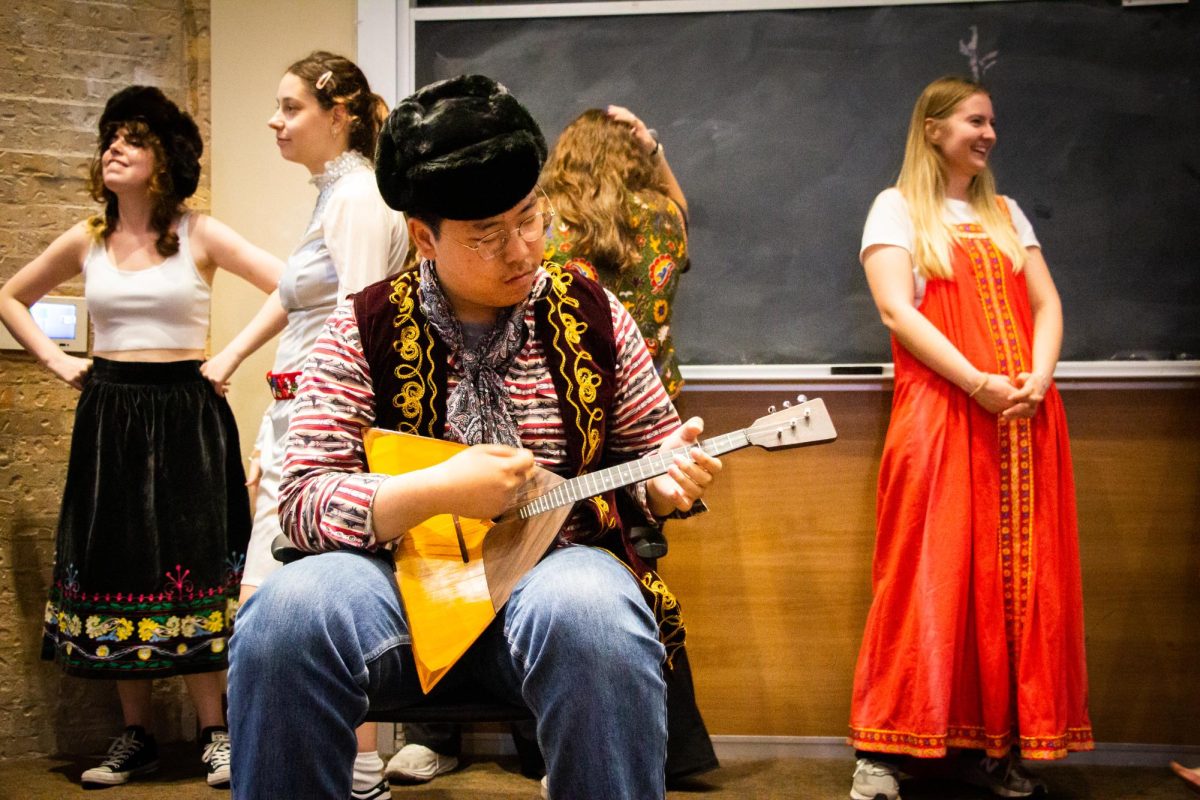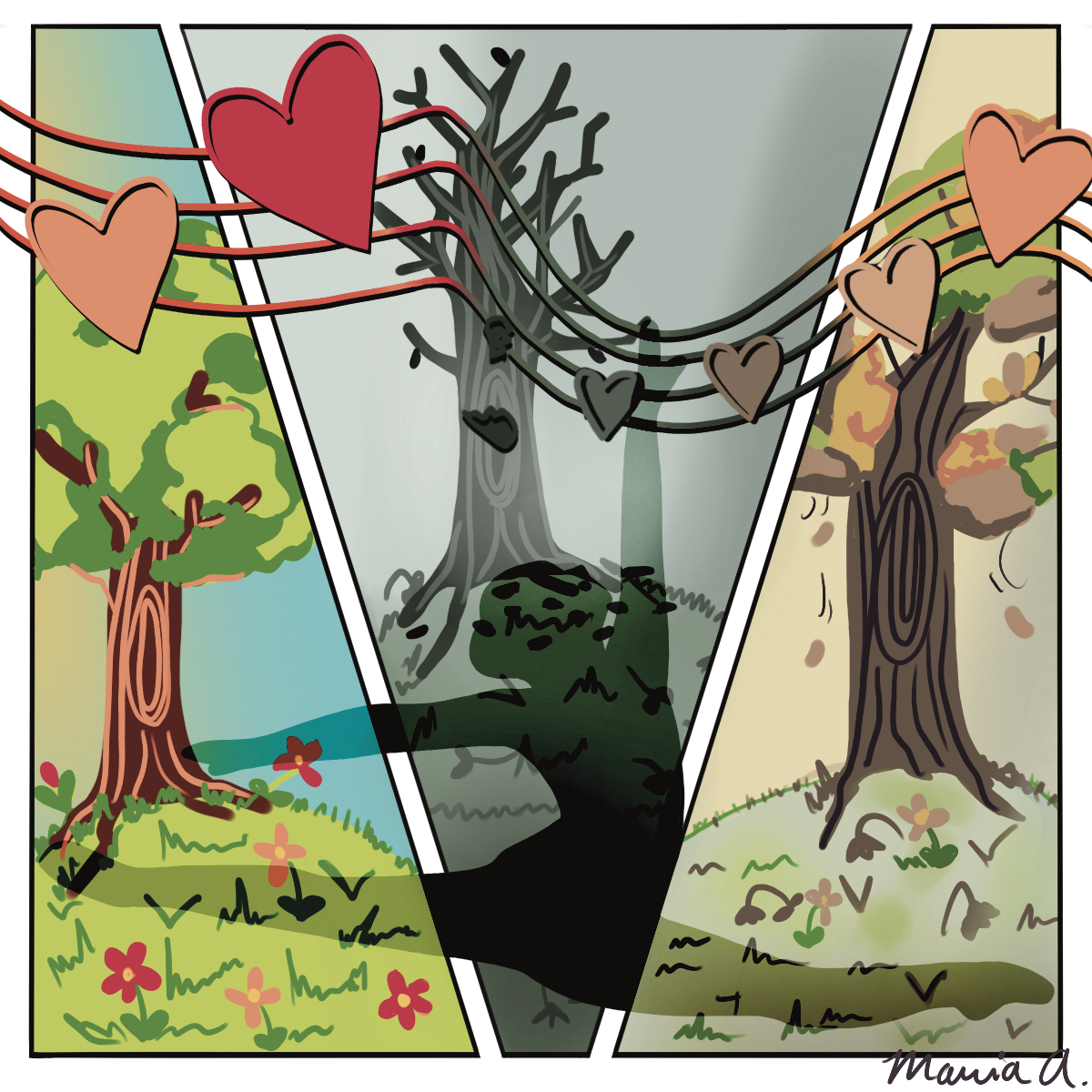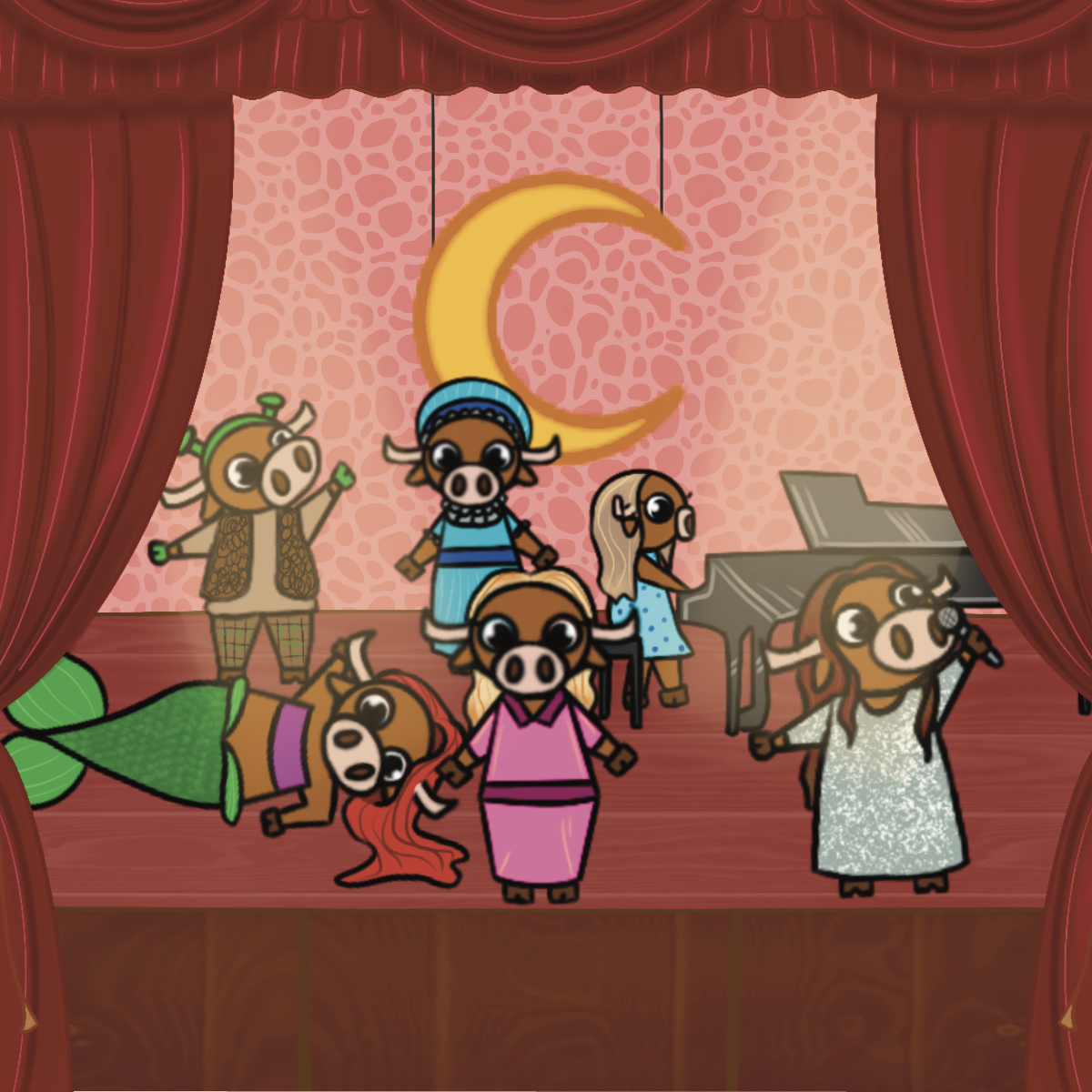The Jester auditorium stage illuminated a group of students in colorful, sparkly clothes with a warm light. As a Slavic song echoed through the room, the students began jumping, kicking in kick-lines and lip-syncing as the audience clapped to the beat.
Sponsored by the Center of Russian and East European and Eurasian Studies, EurasiaVision mimics the international song competition, Eurovision, where chosen singers from European countries showcase original songs to win the title of Eurovision champion. Students and faculty danced, sang and lip-synced as attendees cheered them on, all while sampling traditional Slavic foods.
“The idea was to, at the end of the academic year, invite all of the various Slavic language classes to participate in this goofy, just-for-fun event celebrating Slavic languages,” said Heather Rice, assistant professor of instruction for the Department of Slavic and Eurasian Studies.
This year, 50 to 70 students and faculty participated, said Cara Keirstead, CREES communication coordinator. The showcases included class performances, duets and solos. Rachel Nudelman, math junior and UT’s Russian club president, performed a song in Russian with their club members.
“It’s not that much of a contest. It’s more, ‘Go bond with the rest of the people in the department of Russian and Eastern European and Eurasian Studies,’” Nudelman said.
David Castillo, second-year Eastern European History Ph.D. student and EurasiaVision performer, danced and lip-synced to a song by Electro Team, a Croatian group. While performing, he engaged with the audience by pointing and clapping, garnering shouts and cheers from those watching.
Castillo, who also performed at last year’s EurasiaVision, said that before his performance the audience buzzed and whispered.
“The energy is definitely palpable,” Castillo said.
In addition to allowing students to have fun, performing at EurasiaVision acts as a fun tool to supplement language learning.
“Most students want to hear music in the target language. … I’ve had students add to their playlists on Spotify, lots of these Russian songs that we listened to in class,” Rice said. “Little bits of language will get stuck in your head and they’re super helpful.”
Not only does the event prioritize having fun, it also gives performers and the audience a chance to learn about new cultures, which Rice said holds importance because of how the modern world is not isolated.
“We’re bombarded with aspects of different cultures in all aspects of our everyday life,” Rice said. “For us to better understand what’s happening in the world right now and to better understand our neighbors, we need to have knowledge of other cultures.”
Editor’s Note: This story has been updated to correctly reflect a source’s pronouns. The Texan regrets this error.




















